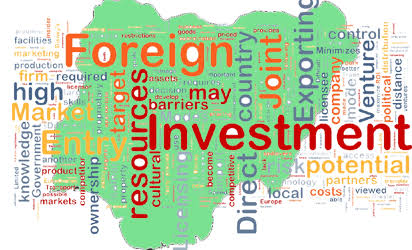
Foreign investors ignored 24 states as the value of capital importation into Nigeria fell by 30.78 percent to $6.7 billion in 2021 from $9.68 billion in 2020.
The National Bureau of Statistics (NBS) disclosed this in its latest Nigerian Capital Importation report for the four quarters of 2021.
The report looked into the value of fresh investments that flowed into the Nigerian economy in 2021.
According to the report, the 24 states include Adamawa, Bauchi, Bayelsa, Benue, Borno, Cross River, Ebonyi, Edo, Enugu, Gombe, Imo, Jigawa, Kaduna, Katsina, Kebbi, Kogi, Nasarawa, Niger, Ondo, Plateau, Sokoto, Taraba, Yobe and Zamfara.
Of the 24 states, ten also failed to attract foreign investments in the last three years.
These states are Bayelsa, Ebonyi, Gombe, Jigawa, Kebbi, Kogi, Plateau, Taraba, Yobe and Zamfara.
LAGOS REMAINS INVESTORS’ FAVOURITE
Lagos outshined other states and the federal capital territory (FCT) to top the list of states that attracted the most investments in 2021.
The country’s commercial city attracted $5.8 billion in investment, representing 87 percent of the total capital inflow into the country for the period under review.
The figure is a 30 percent decrease from the $8.31 billion in investments in 2020.
Abuja (FCT) emerged second top investment destination with $833.4 million — a 34 percent decrease from the $1.27 billion in 2020.
Other states that attracted foreign investments in 2021 are Osun ($29.9 million), Anambra ($4.7 million), Kano ($2.55 million), Oyo ($2.0 million) and Ogun ($1.06 million).
Akwa Ibom follows with $0.74 million, Ekiti ($0.50 million), Kwara ($0.23) million and Abia ($0.01 million), while Rivers and Delta had a $1.0 million investment each in 2021.
Out of 51 countries that invested in Nigeria, the United Kingdom emerged as the top source of capital investment in 2021 with $2.19 billion.
South Africa followed by $1.05 billion in 2021; Mauritius ($690.91 million); and the United States ($677.54 million).
FG HAS IMPLEMENTED REFORMS TO EASE DOING BUSINESS – LAI
According to the World Bank’s Doing Business 2020 index, which was the latest report, Nigeria ranked 131 out of 190 economies across the globe for running a business — up from 146th place the previous year.
Many believe that the government is still paying lip service to the ease-of-doing-business as foreign direct investments have continued to fall partly due to some obstacles placed on foreign companies wishing to invest in Nigeria.
Lai Mohammed, minister of information and culture, explained that the Presidential Enabling Business Environment Council (PEBEC) has implemented over 150 ease of doing business reforms.
PEBEC was set up in July 2016 by President Muhammadu Buhari to remove bureaucratic constraints on doing business in Nigeria.
According to Mohammed, as a result of the reforms, the 2018 Subnational Doing Business report on Nigeria recorded unprecedented improvement and the World Economic Forum (WEF), in its 2018 Global Competitive Report, recognised Nigeria’s business environment as one of the most entrepreneurial in the world and highlighted Nigeria’s improved competitiveness in the enabling business environment.
He noted that the Companies and Allied Matters Act 2020 (CAMA 2020) signed by the president, introduced at least 15 new provisions that promote ease of doing business and reduce regulatory hurdles in Nigeria.
The minister also listed other reforms, including visas on arrival for business people, a reduction in the time it takes to register a company at the Corporate Affairs Commission (CAC) and the introduction of the electronic filing and payment of federal taxes.
Despite these reforms, the country still faces ravaging issues like kidnapping, killings and attacks on government facilities and security infrastructure.



Discussion about this post